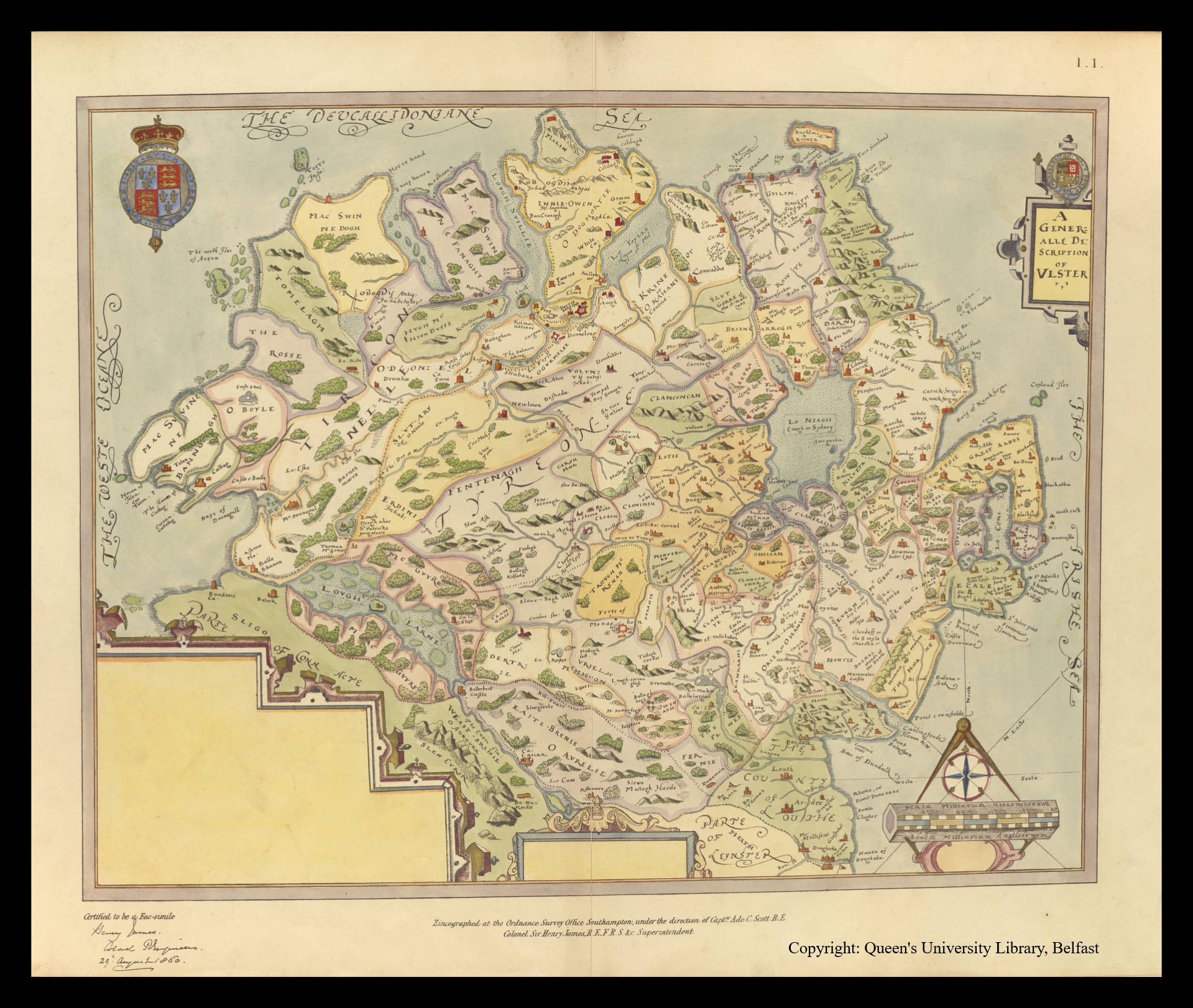Ultonia - Cultural Dynamics in medieval Ulster and beyond: a shared inheritance

This project led by Dr Caitríona Ó Dochartaigh, UCC and Dr Nioclás Mac Cathmhaoil, UU Magee, was inspired by the Educational Dialogue strand of the Shared Island Initiative which calls on educators North and South to learn from each other and jointly reflect on the future of education on the island.
The genesis of the project grew out of the evident need to exploit synergies between existent research centres on a cross-border basis, in order to generate high-quality research outputs and at the same time foster greater co-operation in educational initiatives North and South. The research undertaken interrogates the Cultural Dynamics of medieval and pre-modern Ulster and neighbouring areas as a means of provoking reflection on history and identity. The choice of this time period is deliberate since it avoids many of the politically contested events of later centuries, the early-modern era in particular.
The objectives of the Ultonia project are three-fold: to conduct in-depth research on the cultural dynamics of medieval Ulster within the context of pre-Norman Ireland as a whole, to provide experience in institutions North and South for an early career postdoctoral researcher, and to create a body of educational resources available online for schools on either side of the border. The pre-modern period has become a focus for communities across the island in recent decades, in particular the power dynamics between ancient dynasties such as the Ulaid and neighbouring peoples both on the island and in Scotland and western Britain. The intersection of ecclesiastical power and secular power in the person of important figures such as Columba will also be a focus of the project. Columba who has been embraced by communities right across the religious spectrum in recent decades, will be of particular importance in understanding the intersection between sanctity, culture and society in the medieval period. The cultural exchange between various groups in pre-modern Ireland will be examined in the context of the shifting political situation at the time. In order to adapt this material for a secondary school context, a series of workshops with teachers from across the community will be held. The feedback from these workshops and from the piloting of research packages in the classroom will be a key mechanism in achieving the aims of the project. The educational resources, as the main output of the project, will be a significant long-term contribution to the understanding of cultural diversities. The cultural identity of any group is generally formed around a sense of a common history; what could be described as a community origin-legend. In many cases, however, these identity markers are formed on false narratives of the past. In concentrating on providing factual information on the history of pre-Modern Ireland, it is hoped to dispel some of the myths surrounding the past and build a new sense of a shared inheritance. In this way, untapped research expertise based in both University College Cork and the University of Ulster, Magee Campus, once allied, will inspire new areas of activity which will provide valuable resources, especially post-primary materials, for the development of innovative curricula.
Roinn na Sean- agus na Meán-Ghaeilge
Department of Early and Medieval Irish
Contact us
Bloc A, Urlár na Talún, Áras Uí Rathaille / Block A, Ground Floor, O'Rahilly Building, UCC, Cork
